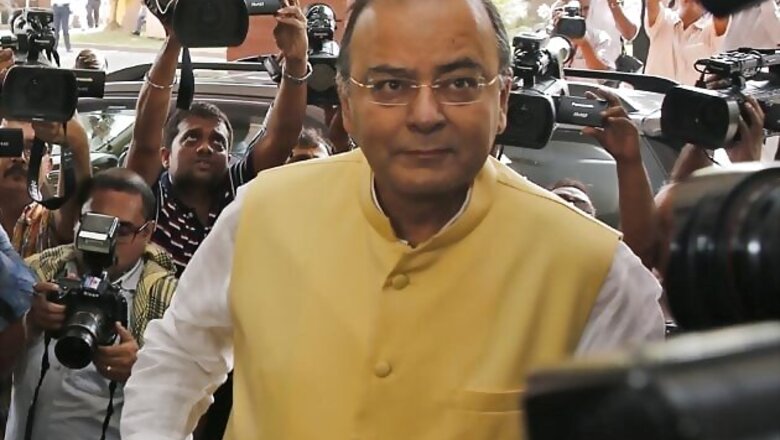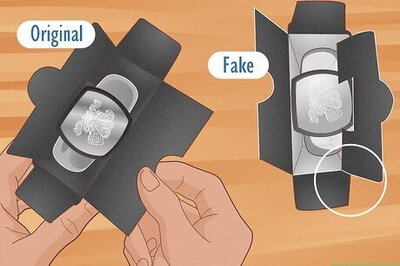
views
New Delhi: A major tax reform cleared a key hurdle in Parliament on Wednesday, when the Lok Sabha passed a Bill to replace a patchwork of levies by the central and state governments with a single nationwide sales tax.
One of major reforms proposed by Prime Minister Narendra Modi, the Goods and Services Tax (GST) has been hailed by Finance Minister Arun Jaitley as the biggest reform in India since Independence in 1947. He has said it could add up to 2 percentage points to the growth of Asia's third-largest economy.
"The whole country, which is one-sixth of the world's population, would become a single market, and, therefore, it would give a necessary fillip as far as trade is concerned," Jaitley told lawmakers in the lower house.
Approval in the Lok Sabha marks an important victory for Modi's ruling Bharatiya Janata Party (BJP), but the Bill still must pass in the Rajya Sabha. Unlike the Lok Sabhs, the opposition, including the Congress party, is stronger there and enjoys majority.
Congress supports the measure, but it boycotted the vote in the lower house, demanding the Bill be first reviewed by a parliamentary panel.
Further complicating matters are the competing interests of the central and state governments, which want to protect their tax revenue and retain fiscal control. The Bill also needs the approval of more than a half of India's 29 states.
The battle has already led to several compromises on the Bill, leading some analysts to say India could end up being saddled with a badly designed tax.
A government think-tank proposed the tax rate be set at 27%, for example, which is well above the global average of 16.4% for similar taxes.
On Wednesday, Jaitley told lawmakers that the proposed rate was "too high" and needed to be "much more diluted". But some states are asking for an even higher rate.
Exemptions and exceptions have also been worked into the Bill. The tax does not apply to alcohol, for example, and petroleum products will be taxed separately at first. Manufacturing states will be allowed to levy an additional tax of 1% on supply of goods.
"All this would make Indian manufacturers and service providers uncompetitive," said Saloni Roy, senior director, tax consultants Deloitte. "We need a GST that would widen the tax base and encourage tax compliance."
Jaitley has imposed a deadline to roll out the common tax in 2016.




















Comments
0 comment